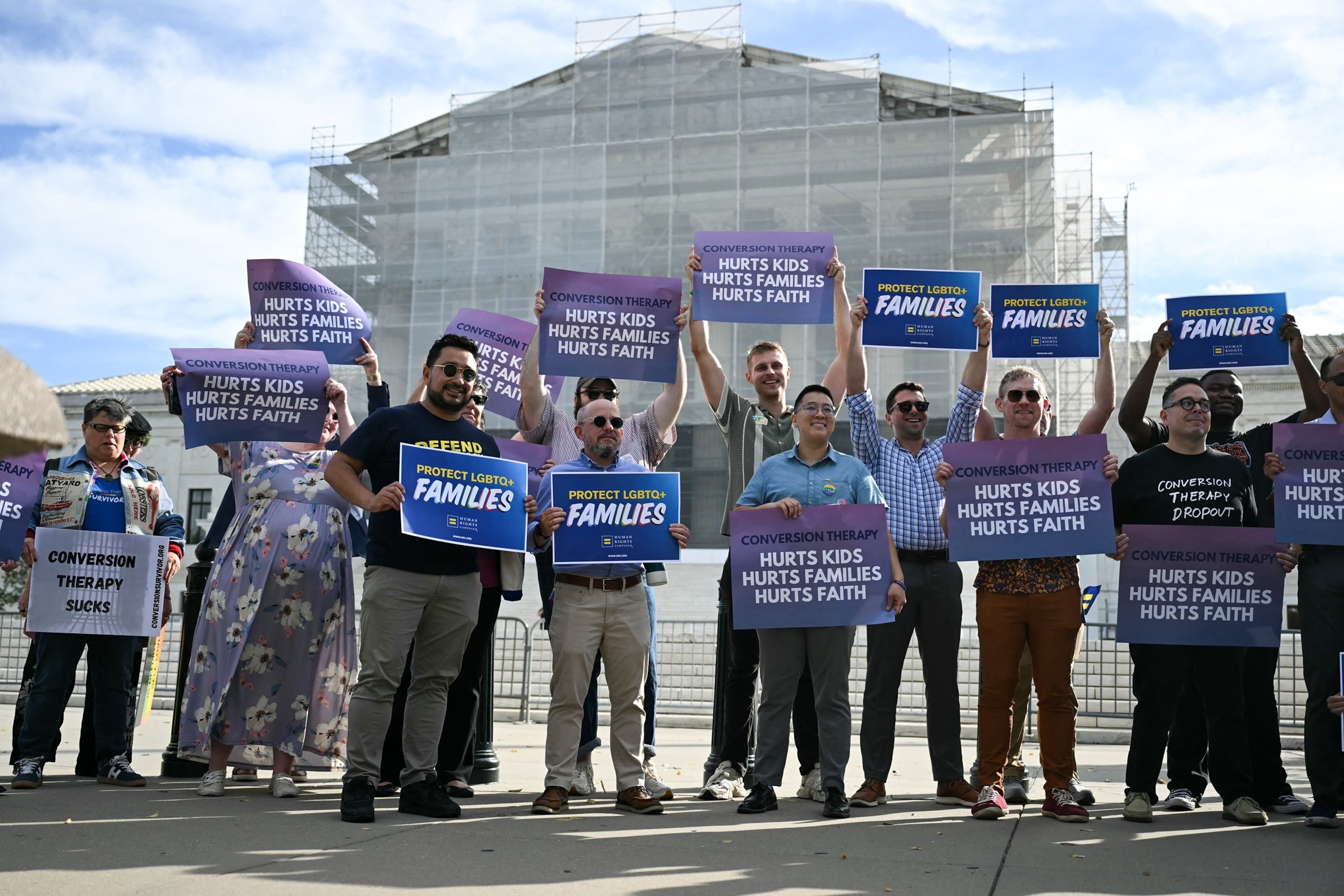
The U.S. Supreme Court heard arguments Tuesday in a pivotal case that could determine whether states have the authority to ban conversion therapy for minors — or whether such bans violate the First Amendment’s free speech protections.
The case, Chiles v. Salazar, challenges Colorado’s 2019 law prohibiting licensed therapists from attempting to change a child’s sexual orientation or gender identity. The law, like similar statutes in more than 20 states, was enacted to protect LGBTQ+ youth from practices that the American Psychological Association and other major medical bodies have condemned as harmful, ineffective, and unethical.
However, the plaintiff, Kaley Chiles, a Christian therapist, argues that the ban infringes on her right to speak freely and offer faith-based counseling. Her attorneys claim the state has unfairly targeted religious viewpoints, effectively criminalizing conversations that affirm traditional beliefs about sexuality and gender.
“This is not conduct — it’s conversation,” Chiles’ lawyer told the justices. “The state cannot dictate what counselors can or cannot say in the privacy of a therapy session.”
Colorado’s attorney general defended the statute, asserting that the law regulates professional conduct, not speech, and exists to protect vulnerable minors. “The state has a compelling interest in preventing psychological harm to children,” he said.
A Deeply Divided Court
The justices appeared sharply divided during two hours of oral arguments. Conservative members, including Justice Samuel Alito and Justice Clarence Thomas, questioned whether the Colorado law amounts to “viewpoint discrimination,” since it bans speech that encourages LGBTQ+ minors to change their identity but allows speech that affirms it.
“This looks like the government deciding which side of a debate therapists can take,” Alito remarked.
On the other side, Justice Sonia Sotomayor and Justice Elena Kagan emphasized that the law targets specific therapeutic practices, not casual conversations or moral discussions. They warned that striking down the law could jeopardize states’ ability to regulate medical professions and protect patients from harm.
Justice Ketanji Brown Jackson noted the broader implications: “If we say this is protected speech, what stops a state from regulating any form of medical advice — even when it’s dangerous?”
National Implications
A ruling against Colorado could have sweeping consequences. More than 25 states and the District of Columbia currently restrict or ban conversion therapy for minors. If the Court finds these laws unconstitutional, it could invalidate protections nationwide, reshaping how states regulate licensed counselors and medical professionals.
Advocates for LGBTQ+ youth fear that overturning the ban would embolden practitioners who promote discredited therapies. Supporters of the challenge, however, argue that the issue is about free speech and religious liberty, not therapy outcomes.
Legal analysts say the decision — expected by June 2026 — could redefine the boundaries between professional regulation, freedom of speech, and faith-based counseling in the United States.
As one attorney noted outside the Court: “This case isn’t just about therapy. It’s about who gets to decide what can be said in the name of care — the government, or the individual.”
Watch video below :












